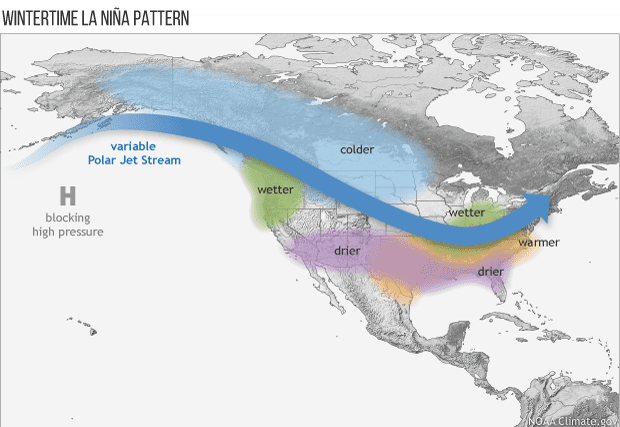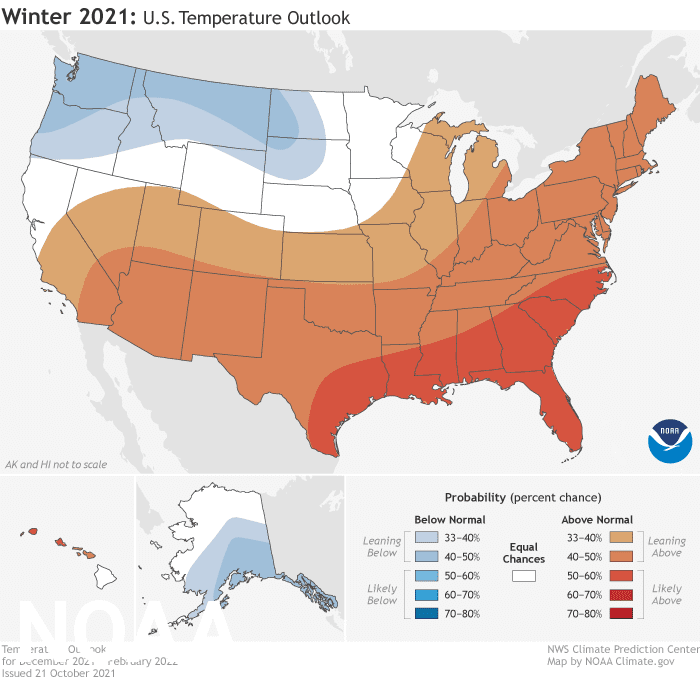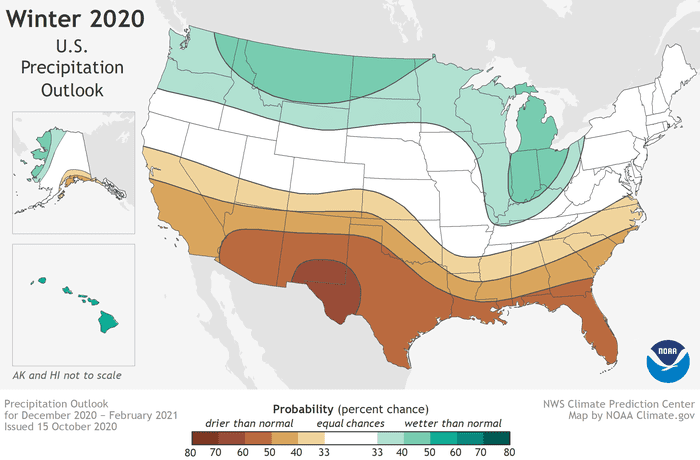NOAA’s Climate Prediction Center released its Winter Outlook Thursday, and for all of Texas, the upcoming winter is expected to be a fairly mild, with less rainfall than-normal.
For the second winter in a row, La Niña climate conditions have emerged in the tropical Pacific, and forecasters feel this feature will likely have a strong influence on the winter pattern across the nation.
NOAA’s prediction of temperatures and precipitation for this winter largely reflects typical conditions during La Niña events. La Niña conditions prevailed last winter. And outside of the February cold snap, average to above-average temperatures were observed across a portion of the U.S.

NOAA’s outlook shows increased odds temperatures will average warmer-than-normal everywhere south and east of the Pacific Northwest, the northern Rockies, and the Upper Midwest.

According to NOAA, the jet stream pattern during La Nina favors a storm track across the northern part of the country, rather than across the south. This in turn favors above-average precipitation across the Pacific Northwest and the Great Lakes regions and below-average rainfall across the Southern states, including Texas.

Outside of the Pacific Northwest and the Northern Rockies, where confidence is fairly high that conditions will be cold and stormy, CPC forecasters stated the character of the winter will depend a lot on weather fluctuations that can’t be forecast this far in advance. The most important of these fluctuations is the polar vortex, a pool of frigid air and low pressure that swirls at high latitudes over the North Pole. A strong polar vortex is more self-contained and whirs around faster, keeping the coldest air relegated to the Arctic Circle. But if the polar vortex is weaker, there’s not as much force to keep the bitterly cold air in place, allowing pockets of the cold air to pinch off and spill south to the mid-latitudes.
That’s what happened back in February, when a massive dip in the jet stream brought a huge deep freeze to all Texas, crashing temperatures and toppling records. CPC forecasters stressed that extreme events such as that Texas cold snap cannot be forecast months ahead of time.
It’s unlikely but not totally impossible that such an event would happen again this winter.
Bob


Social Media